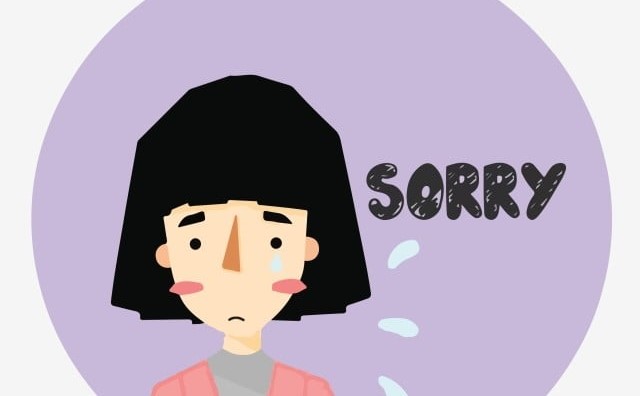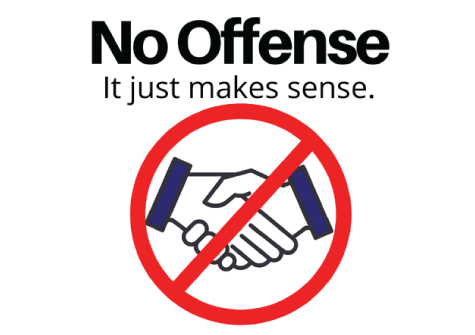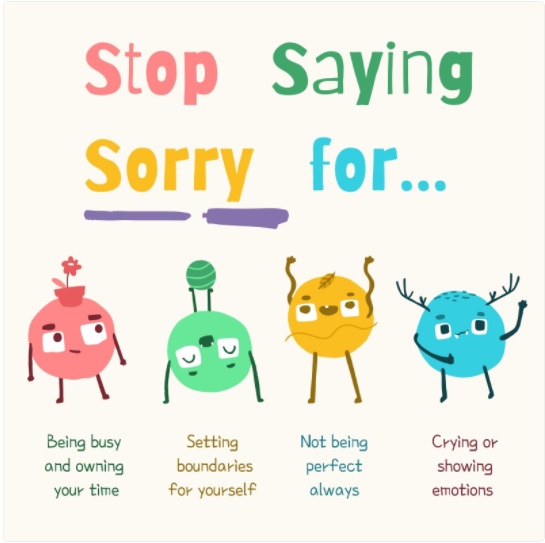
If you are a woman, here’s a social experiment for you to do the next time you step out of your house. Start walking into a crowded area (Mildly crowded, I may add. There is a pandemic going on, after all) and walk straight in the middle of the footpath. Do not move whoever comes in front of you. The chances are you will bump into a man in the next 10 secs. And mind you, a man, not a woman. Why? Because we women, we move out of the path. Every time.
We are programmed to move just as we have been programmed to say sorry.
HAVE YOU THOUGHT ABOUT THE NUMBER OF TIMES YOU SAY SORRY IN A DAY?

Statistically speaking, women are inherently known to apologise more frequently than men (we’ll get more into that later). Don’t get me wrong, saying sorry is an essential tool when rectifying a mistake. But over-apologising without real reason can be dangerous to our personal and professional development.
It’s ritualistic that when we do something wrong, we follow up with “sorry.”. But, profusely apologising is a sign of an empty promise. So, why do we apologise even when we have done nothing wrong?

- No offence, please.
The reason women apologise more than men because they judge the same offence to be more severe than their male counterparts would, according to an article by scholars Karina Schumann and Michael Ross. Women also find the person at the receiving end to be more deserving of an apology than men. Men, however, are no less willing than women to apologise for their behaviour so long as they accept that it is indeed offensive.
- Time for some new tricks.
As girls grow up, the messaging they receive of what entails “good” behaviour gets pretty convoluted.
For example, our society encourages men to be strong, direct, assertive, confident and unabashedly committed to achieving their goals (and to avoid being or showing that they are emotional or vulnerable). On the other hand, our society encourages and teaches women from the earliest age to be kind, malleable, pleasing, accommodating and acquiescing. And they are taught that it’s not good or acceptable for women to appear overly ambitious, confident or strong.
- The bossy problem
Girls who don’t play by these rules often experience negative social feedback. An assertive girl might be called bossy, a girl who shows confidence in her ideas, conceited. Though still told to work hard, get ahead, and be successful, girls are often shamed, especially by other female peers, if they appear pushy, overly confident, or too forward.
Girls begin to pepper their language with apologies and qualifiers that turn statements into suggestions and make requests feel less demanding. “I know” becomes “I’m not sure, but…” “I have a question” turns into “Sorry, would it be okay if I asked a question?”
- Agree to disagree
Another reason women qualify and apologise is to defuse or avoid situations that could lead to disagreements. It can feel scary to commit to a statement that others might not like, but learning to be comfortable with conflict and debate will make her more resilient and give her a healthy toolkit for managing adversity in the future.
- Conflicting messages.
In his book, The Triple Bind, Dr Stephen Hinshaw explains that as girls grow up, they receive constant messages from the culture about what “good” behaviour entails. These messages include:
- Be confident but not arrogant
- Be smart, but no one likes a know-it-all
- Ambition is good, but trying too hard is bad
- Be assertive, but only if it doesn’t upset anyone else
Now that you know the “why’s” for your over-apologies; here’s why you need to stop.

1. People lose respect for you.
In her book, “The Power of an Apology,” psychotherapist Beverly Engel says over-apologising isn’t so different from over-complimenting: You may think you’re displaying yourself as a pleasant and caring person, but you’re sending the message that you lack confidence and are ineffectual
2. It lessens the impact of future apologies.
Don’t cry wolf. If you say “I’m sorry” for every little thing now, your apologies will carry less weight later on — for situations that warrant a sincere apology.
3. It’s annoying.
We’ve all been around someone who constantly apologises. We understand they’re only trying to be nice, but it can often feel exhausting and irritating at the same time.
A study published in the journal Frontiers of Psychology even found that saying “I’m sorry” when intentionally rejecting someone (i.e., cancelling plans, breaking up with someone) could cause the other person to “feel worse. What’s even worse is that they have to forgive the rejecter before they are ready,” says Gili Freedman, one of the study’s authors.
4. It can lower your self-esteem.
According to a study published in The European Journal of Social Psychology, choosing not to apologise may have psychological benefits. Researchers found that participants who refused to express remorse showed signs of “greater self-esteem, increased feelings of power (or control) and integrity.”
5. It can impact your professional career.
Maintaining professional etiquette includes utilising effective communication. This requires eliminating “sorry” from your vocabulary. Saying sorry too much may seem like the easy way out in difficult situations or may show a lack of accountability and indecisiveness in your duties.
Guess who’s watching?!

So whatever your reasons for the over-apology is, this is the right to put a lid on it. And one of the biggest reason to do it, so you don’t pass it on.
If you’re a mom or a role model of any kind, you have to pay extra attention to the example you might be setting. Chances are, you don’t want your daughter to feel like she’s doing something wrong constantly — or to come across as weak. Over-apologizing is a hard habit to break, so nip it in the bud and keep the next generation in mind. Sorry, not sorry.

